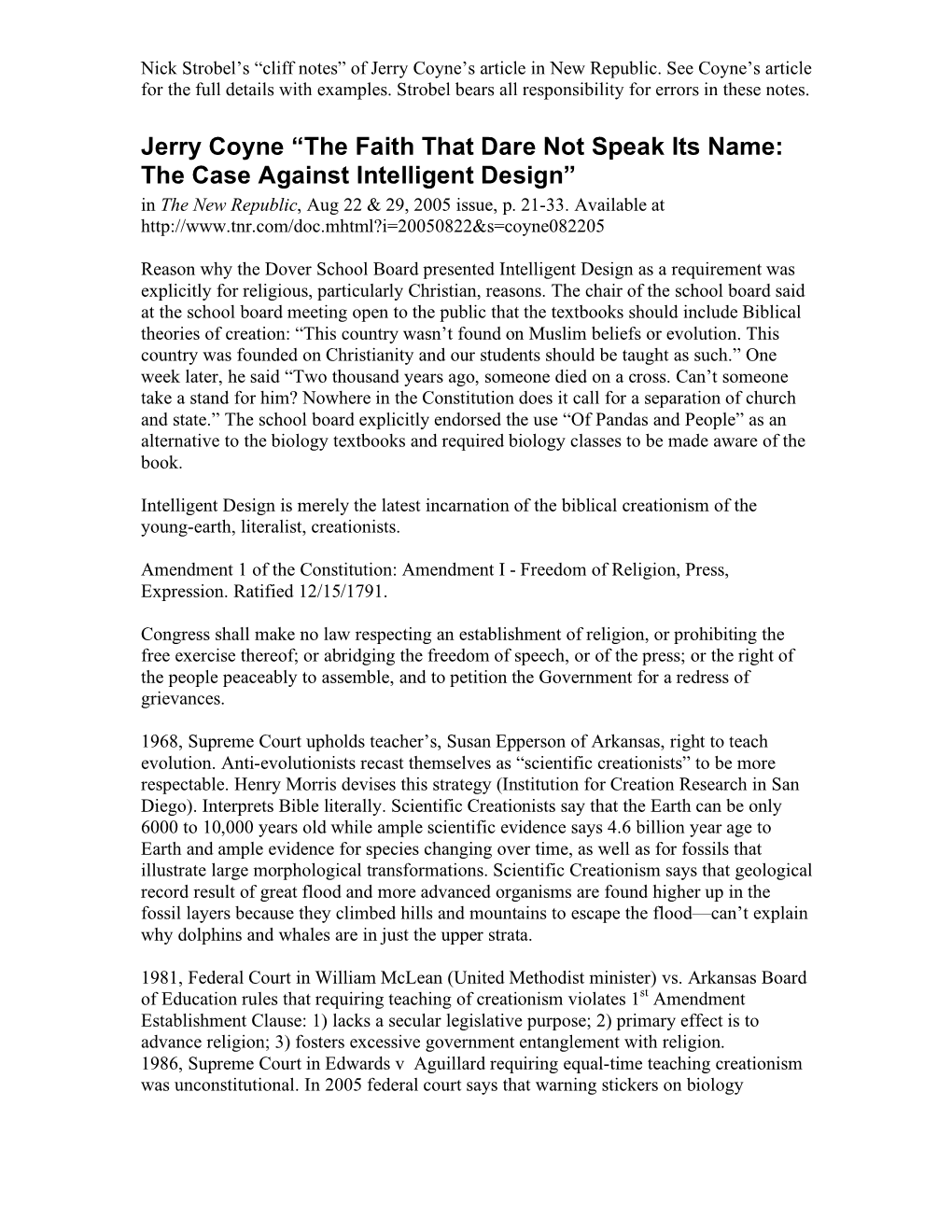We excerpted for Behe, above. So when Broocks and Hedin came to town to evangelize (OP), they weren't far from Coyne at the U. of Chicago (post #130). Coyne mentions IDer Behe's serious misgivings and Fry mentions both, here:
'The probability that "irreducibly complex systems" could have arisen "as an integrated unit in one fell swoop" is nil. Denying the possibility of an alternate natural mechanism that could have accomplish such a feat and relying on an analogy with the power of intelligent agents, Behe concluded that these systems had to result from the action of an intelligent designer.
Space will not allow me to dwell on the various mechanisms that could have led to the natural evolution of functional systems of interdependent parts, brought forth in the literature by evolutionary biologists and cell biologists (see, among many, Coyne 2006 Intelligent Design: The Faith That Dare Not Speak Its Name, in Intelligent Thought, Ed. J. Brockman, pp. 3-23, New York: Vintage Books; Gishlick 2004; Miller 1999; Musgrave 2004).'
(Fry, op. cit.)
Unsurprisingly, when hunting for the original version of Coyne's paper cliff noted by Nick Stroebel (post #130), two of Coyne's sources for the original article have been scrubbed:
Because of copyright issues, this article is not available online. Subscribers can download it in PDF format here.

newrepublic.com
'This article is not available online.'


